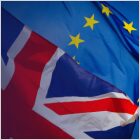“Passports are needed even for domestic flights”, one comment on X read. Not true, but typical of other responses to the exclusive article in The Independent about Nigel Goddard’s trip from London to Belfast. His flight, along with many others, was cancelled on Sunday night.
The easyJet app recommended an alternative to Mr Goddard: flying from Gatwick to Malaga in southern Spain and north to Belfast. He was unable to take up the option (which included time for a beach break between flights) due to not having a passport. And that is what triggered the controversy.
The Civil Aviation Authority insists you will need a valid passport “for many domestic flights within the UK” – but this is simply incorrect.
British Airways correctly states: “You do not require a passport to travel within the UK.” But ID rules are complex, and for travel to Ireland you might need a passport.
These are the key rules – and policies – for your journey.
What are the rules for flying within the UK?
There is no legal requirement to carry identification, but in practice airlines demand ID from adult travellers.
British Airways requires photographic ID from passengers aged 16 and over (as well as 14- and 15-year-olds when flying solo). Examples include:
- Valid passport
- Valid driving licence, either provisional or full
- Valid EU national identity card
- Valid armed forces identity card
- Valid police warrant card or badge
EasyJet has a similar list to British Airways but also accepts passports up to five years after expiry.
Ryanair is more generous, accepting “Any photo ID which matches the passenger’s name in the booking”. This could, for example, include a student card or bus pass.
Eastern Airways also accepts student cards and bus passes, as well as company IDs. But it insists under 16s have some form of identification, such as a birth certificate or NHS health record.
Loganair says: “Travellers do not require a passport when flying within the UK. Nevertheless, it would be best to always have photographic identification with you at the airport.”
Why are these policies so different?
They are simply measures put in place by airlines to prevent “tariff abuse” – passengers selling or giving away flights to other people. The practice used to be rife, and I am embarrassed to say that I once took a British Airways flight…
Click Here to Read the Full Original Article at The Independent Travel…
